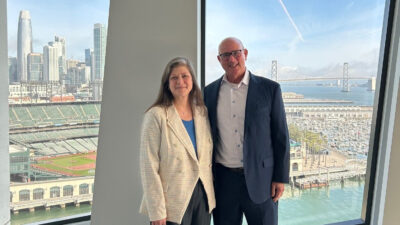Bay Area Council Poll: Region Far Surpasses State, Nation in Employer-Based Health Insurance
The Bay Area blows away the rest of California and the nation when it comes to healthcare insurance coverage, according to the 2014 Bay Area Council Poll, which also finds very few residents rely on government insurance programs.
The poll found that 93 percent of Bay Area residents say they are covered by some form of health insurance. Bay Area residents also enjoy some of the highest levels of employer-based coverage, with the poll finding 81 percent getting insurance through an employer.
“Bay Area businesses fighting to attract top talent recognize that providing healthcare coverage gives them an important competitive advantage,” said Jim Wunderman, President and CEO of the Bay Area Council. “What businesses want to know is that their healthcare dollars are being spent efficiently and effectively, and that policies are in place to control costs and improve quality of care.”
Read complete 2014 Bay Area Council Poll results.
The results also show that while 61 percent of Bay Area residents support the Affordable Care Act (ACA), very few either have need for it or take advantage of it. A sizeable 70 percent said they had not visited the website for Covered California, the state’s health insurance exchange. However, among those that said they do not have insurance, 57 percent visited the Covered California site.
Residents also rank improving access to healthcare as a high priority for local government leaders, with 72 percent saying health care access should be an important goal. That is particularly true for lower-income residents, with 79 percent of those making $75,000 or less ranking health care access as a high priority compared with 65 percent for those making $125,000 or more.
The 2014 Bay Area Council Poll, which was conducted by Oakland-based public opinion research firm EMC Research, surveyed more than 1,000 residents in an online poll about a range of issues related to economic growth, housing and transportation, early childhood education, energy and communications, and healthcare. The results are being released over five days beginning May 27.





